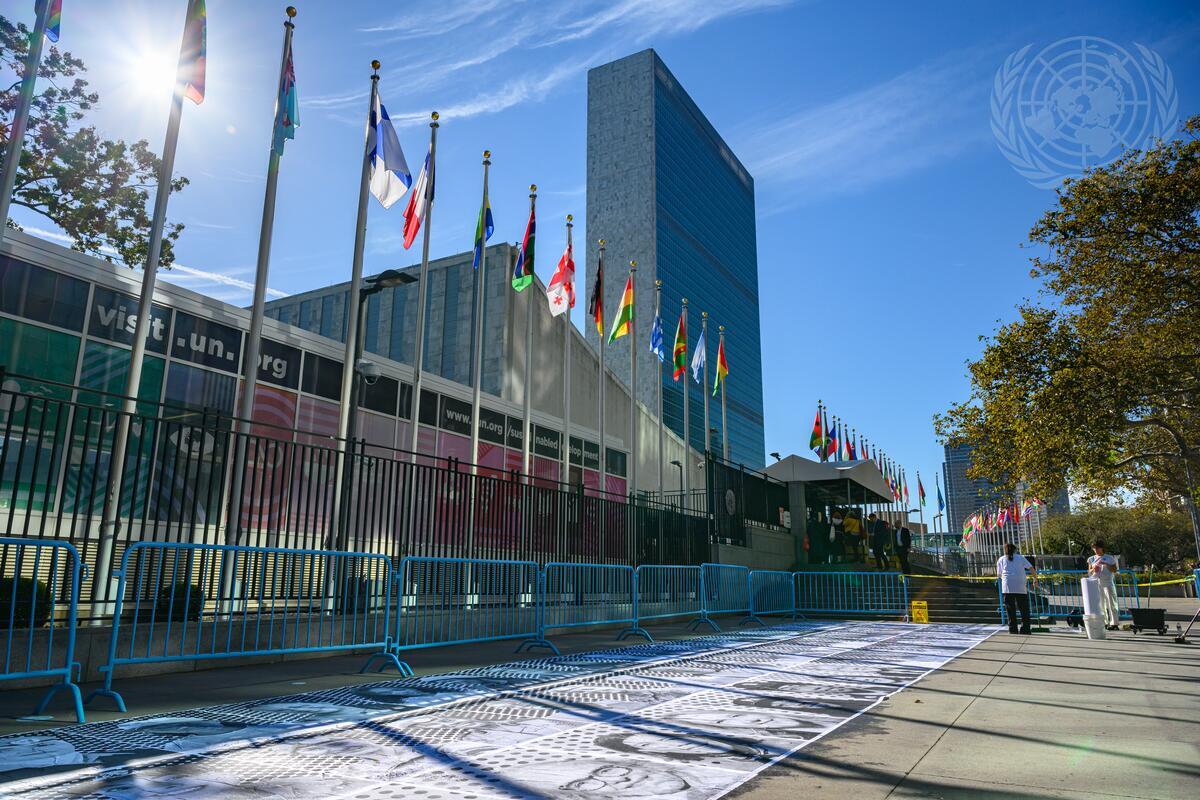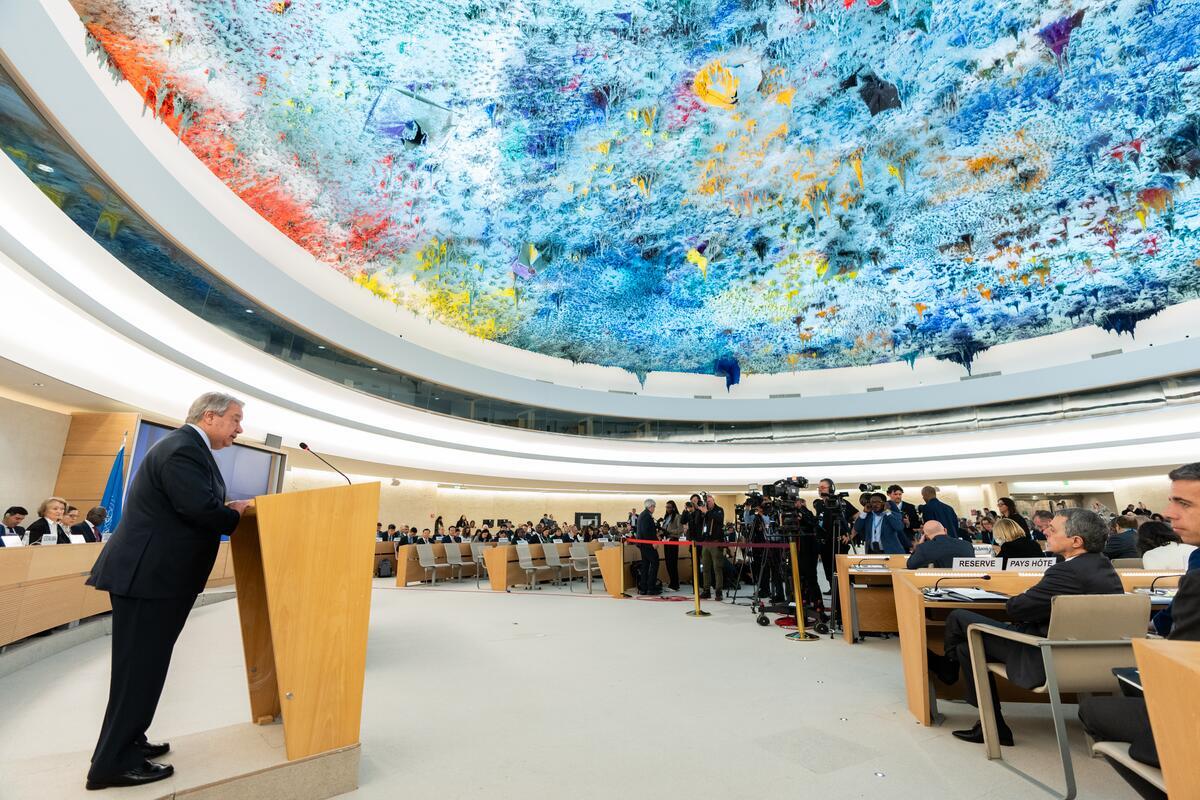Women’s rights dominated the criticisms and recommendations received by Botswana from UN member States during its second Universal Periodic Review (UPR). States pointed out that three out of four women in Botswana are subject to gender-based violence.
Botswana’s Minister of Defence, Justice and Security, Mr Dikgakgamatso Ramadeluka Seretse, presented the country’s second UPR report. He said out that in 2009, for the first time, a woman was elected the head of Botswana’s legislature. Further, women became heads of the Central Bank, Attorney General, and Ombudsman.
Botswana also created a National Children’s Council, and as per recommendations from the first cycle, became members of several human rights treaties. However, several States recommended that Botswana ratify the International Covenant on Economic, Social, and Cultural Rights, a recommendation it has not implemented from the first cycle.
Criminalisation of homosexuality
Many States urged Botswana to decriminalise homosexuality. Mr Setetse’s response was to stress the cultural difficulties of decriminalisation. He noted a 2010 labour law that prohibited discrimination on the basis of sexual orientation, but added that to give homosexuals ‘a right to enjoy whatever follows becomes a cultural issue’. Mr Seretse agreed with States’ recommendations that education on this issue is necessary.
Death penalty and corporal punishment
Several States recommended that Botswana either place a moratorium on the death penalty or abolish it. In reply, Mr Seretse asserted that the majority of citizens believe that the death penalty should remain. However, he noted that Botswana needed to comply with international obligations, and so the Government should educate the population on this issue.
States also called for an end of corporal punishment, especially for children. Mr Seretse replied that corporal punishment was not barred by Botswana’s Constitution. He reminded the audience that although some in the international community ‘have advanced to a certain level of cultural development…you must also be careful not to get into a situation where there appears to be an imposition’. He again acknowledged that the Government should educate people regarding this problem.
The organisation Global Initiative to End All Corporal Punishment of Children stated, ‘Prohibiting and eliminating corporal punishment of children is a key obligation under international human rights law: it is not an optional extra that states can adopt or discard at will. In line with the high profile of the issue in the Universal Periodic Review as a whole, Botswana received a number of recommendations concerning corporal punishment of children. It is deeply disappointing that the Government has opted not to support the majority of these recommendations and to follow public opinion in support of retaining corporal punishment – a position at odds with its stated commitment to comply with its treaty obligations.’
Indigenous rights
The United States, the Republic of Congo, and Finland were among the countries that encouraged Botswana to better the situations of the San population, an indigenous group of Africa, and to permit them to return to the Kalahari. Mr Sereste pointed out that there is a need to balance the preservation of nature with the needs of people. He stressed that Botswana provided alternative housing or habitation for this group.
Minority Rights Group International (MRG), which submitted a statement to the review, commented that, ‘It is both disappointing and concerning that Botswana rejected MRG’s recommendations on removing ethnically discriminatory laws and protecting the rights of its ethnic minorities. Minorities in Botswana experience considerable marginalisation and discrimination, including in political representation and decision making processes. A clear example of this is the composition of the House of Chiefs, which advises the Government of Botswana, but which at present is only representative of 8 of the 45 tribes across the country. We are however encouraged that Botswana would consider further a recommendation on mother tongue education. MRG will continue to advocate to ensure the equal participation and representation of all tribal groups in governance processes in Botswana and to ensure that this is reflected in national law.’
Botswana received a total of 175 recommendations, of which it accepted 93, rejected 39 and took 43 back to the country for further consideration. It will provide its position on these outstanding recommendations to the 23rd session of the Human Rights Council, scheduled from 27 May to 14 June 2013. Those rejected included recommendations to abolish or establish a moratorium on the death penalty, to prohibit corporal punishment of children, and to decriminalise same-sex relations. It did however accept recommendations to combat discrimination against women, to achieve substantive equality, and eliminate negative cultural practices and stereotypes that contribute to discrimination against women.
Heather Collister is a Human Rights Officer and Carlen Zhang is an Intern with the International Service for Human Rights. To follow developments in the UPR and at the Human Rights Council as they happen, follow us on Twitter: @ISHRglobal.



